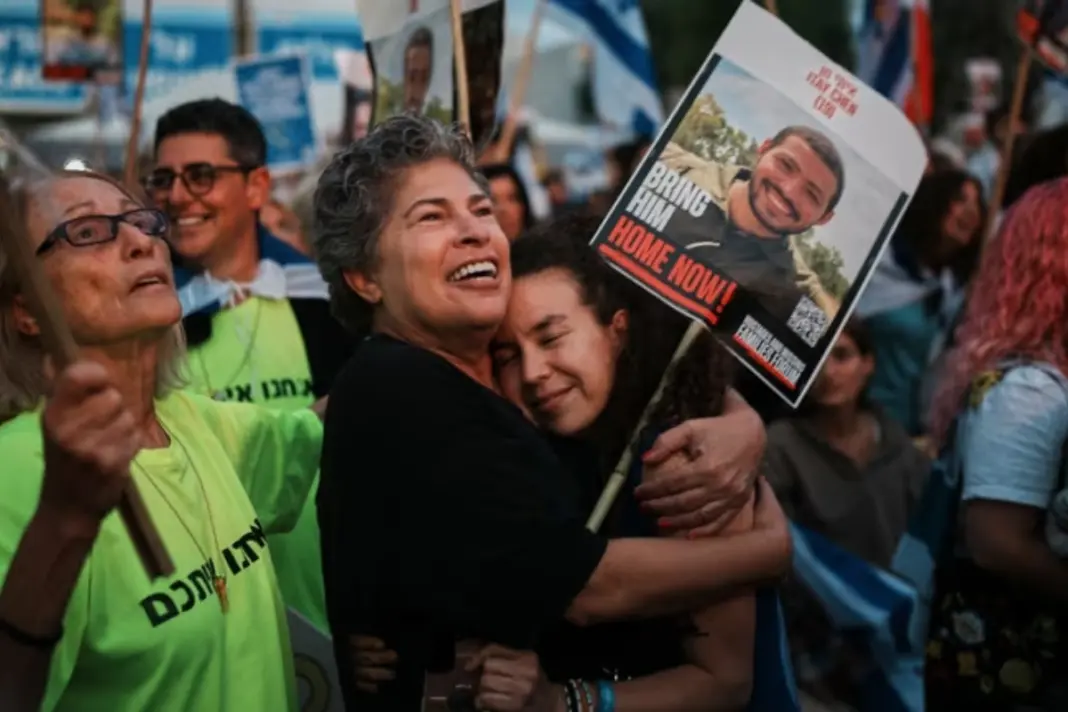Gaza War Over: In a surprising development, Hamas has freed seven Israeli hostages, being conveyed through the International Committee of the Red Cross (ICRC), as part of ceasefire negotiations. The recently released hostages—among the earliest of those slated to be freed—were received by Israeli officials and taken to receive medical treatment as family members and spectators looked on with their breath and anticipation.
The release is the first part of a larger swap deal: Israel has already committed to releasing more than 1,900 Palestinian detainees, including women, minors, and detainees who have been held for many years, in exchange for additional hostages, and their deceased bodies, and a functional ceasefire.
Background: Two Years of War and Ceasefire Developments
Gaza War Over: The release of hostages has taken place since the outbreak of the brutal two-year war, ignited by the Hamas attack on October 7, 2023, that resulted in approximately 1,200 dead Israelis and over 240 hostages. Following this, Gaza has incurred devastating and catastrophic losses, with tens of thousands of dead Palestinians, and a huge amount of the territory and inhabited areas destroyed.
As part of a peace process overseen by the United States, the ceasefire began to commence earlier in the week, and both sides agreed to a phased exchange and involvement of both sides for troop reduction, and prior to the agreement of the previous hostages to be released. One of the key issues is still Israel’s insistence on the disarmament of Hamas and a transfer of control or oversight of Gaza to
DON'T MISS
Public Reactions and Diplomatic Manoeuvres
In Tel Aviv, cheers erupted in Hostages Square as crowds gathered around loudspeakers announcing the names of the hostages now free. Families and officials shared their relief, while political leaders described the moment as historic. In Gaza and the Palestinian territories, many hold out hope for further prisoner releases and reconstruction efforts.
U.S. President Donald Trump, who is said to have brokered the deal, is heading to the region to drum up support and co-chair a peace summit in Egypt. Dozens of world leaders are expected to convene in Sharm el-Sheikh in order to negotiate potential governance, reconstruction, and security arrangements related to Gaza.
Whether Peace Will Last? Looking Ahead, the Difficulties
While the exchange may imply a positive turn, the prospects for stability remain fragile. The challenges ahead include, but are not limited to:
Disarmament of Hamas: Israel calls for full demilitarisation of Hamas, but Hamas has so far refused to completely relinquish its arsenal.
Gaza governance: Who governs Gaza in the meantime? There are ideas of a technocratic body, Arab peacekeeping forces, or some form of transitional administration.
Confidence between the two sides: The two sides have deep distrust of each other. There is the possibility of one party breaching the agreement, a failure to implement the agreement, a new escalation of hostilities, or one party provoking the other, which would all negate the agreement. Humanitarian needs and the ability to rebuild: Even with peace in place, Gaza now has massive rebuilding needs, mass displacement, and shortages of essentials needed. If aid comes to an end or is not sustainable, the grievances that have resulted from the authorities’ practices will lead to a new escalation.



